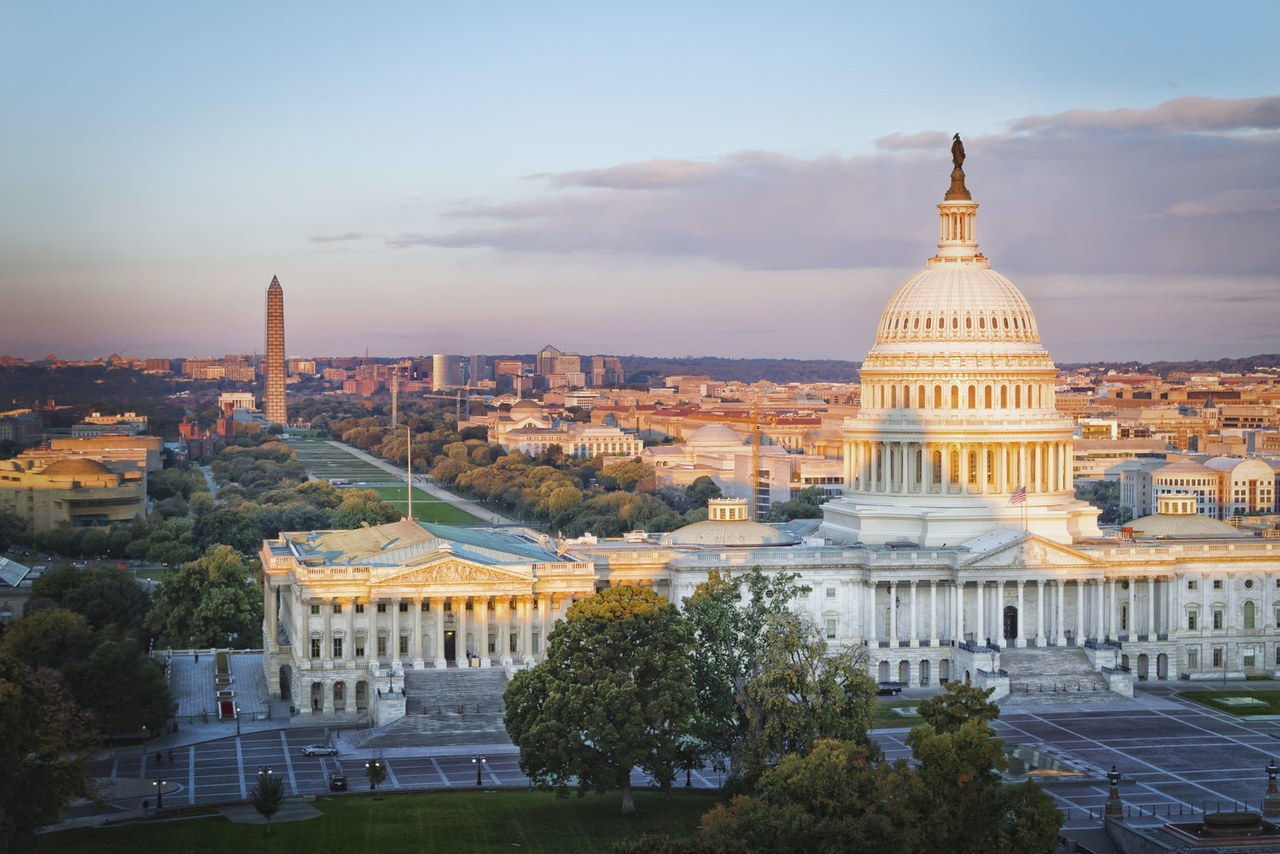Living Under the Threat of ISIS in Washington, D.C.: When Terrorists Vow to Attack Your City
Every journalist—hell, every news reader—is used to the cavalcade of graphic, disturbing, downright frustrating news that comes galloping into your bedroom when you flip on your phone at 7 A.M. every day, displacing mundane domestic thoughts of empty shampoo bottles with images of battle-torn bodies. For the most part, we absorb the information easily. Another bombing in a marketplace, no matter how wrenching, somehow doesn’t penetrate the American psyche. It’s frustrating, but true. But the news on Monday—that ISIS, the extremist terror group who took credit for the attacks on Paris on Friday, declared in a video that it was planning to attack my city, Washington, D.C., next—somehow wormed its way even deeper into my mind. The news didn’t leave me concerned or uneasy or agitated. It left me downright afraid.

My husband and I often joke that we shouldn’t bother with preparation for any sort of apocalypse or invasion, zombie or otherwise, because of our home’s location: living five blocks north of the White House is normally wonderful, but in a state of emergency it would be an outright death sentence. We laughingly tell people that we’re definitely in the line of fire for any sort of Independence Day-type firebombing—no point stressing since we’ll be gone in the blink of an eye! And because we’re car-less urbanites, fleeing the city is simply not an option. At some point in nearly every action film that features violent baddies targeting D.C., I notice that our lovely little home would probably be kaput in the face of such massive firepower.
But when I read ISIS’ chilling words on Monday, their promise that “as we struck France in the center of its abode in Paris, then we swear that we will strike America at its center in Washington,” it suddenly didn’t feel very comical to laugh about the fact that in the event of an attack we’d be toast. Instead, it felt crippling, like stepping outside my door was now a risk in a way that it hadn’t been for the past 14 years, since the attacks on 9/11. And when I received an email just minutes later saying that my office building and the surrounding four blocks were closed while police searched door to door, my stomach clenched even tighter.
I made a series of decisions that now, just 48 hours later, feel silly and out of proportion. Instead of wearing the skirt and heels I planned to wear to the office, I put on jeans and brogues—an outfit I felt more comfortable in, one that I could, quite frankly, run in if need be. I debated whether or not it was sensible to have that after work drink at Le Diplomate—one of the most crowded, lively restaurants in the city. I woke up my husband to tell him I loved him before I left for work. I bent my day around my fear of the now-just-maybe possible.
In the days since the Paris attacks, there’s been a strange backlash to the online outpouring of love and support for the City of Light. A vocal minority has been indignant over the fact that Americans have responded to the Parisian attacks with French flag overlays on their Facebook profile pictures or tweeted with the #PrayforParis hashtag—but that they haven’t done the same after similar attacks in Syria, or the Democratic Republic of Congo, or Afghanistan. But the fact is, Paris is a place that Americans frequent—it’s the dreamy romantic destination for couples and honeymooners, and its streets and landscapes are more firmly inked on our brains than some regions of our own country. It’s logical—and understandable—for humans to feel more moved by the destruction of the familiar than the unfamiliar.
Yet opinion writers, who are desperate to put forth provocative arguments for clicks, and friends on Facebook and Twitter tell us that there is a right way to respond to tragedies like the one in Paris. We should voice support but only at particular moments and in particular ways. And most importantly, they say that we should not be afraid—that strength and resilience is the way of showing ISIS that it cannot win.
And so what do I do with that blood-pressure-raising gush of adrenaline that crashes over me when I imagine attacks similar to those in Paris happening at my favorite wine bar or near my office or home, or when I imagine my own friends and loved ones bleeding out on floors and hiding from bullets? Should I feel guilt for feeling so deeply when Paris’ crisis has barely affected me? And then stupidity over that guilt? Should I worry that having any feelings at all means that I’m making this about me, the narcissistic American?
I know that the likelihood of an attack on Washington is low—national security experts have been bursting through the woodwork for the past 48 hours to let us know that. I know that the relative safety and prosperity I live in keeps me in a bubble from the true pain and anguish much of the world experiences. But I’ve decided that it’s OK to be terrified by the sum total of all this. There’s nothing weird or wrong about my worry, or yours, that normal life might just explode at any moment. Fear is a protection and preparation mechanism—one that we should listen to and accept in ourselves, so long as it’s not used to conjure up hate or antipathy for others. It’s OK to respond to our changing world with anxieties and doubts, especially when you know that your way of life is exactly what one dangerous group seeks to destroy. It’s OK to feel it all.

